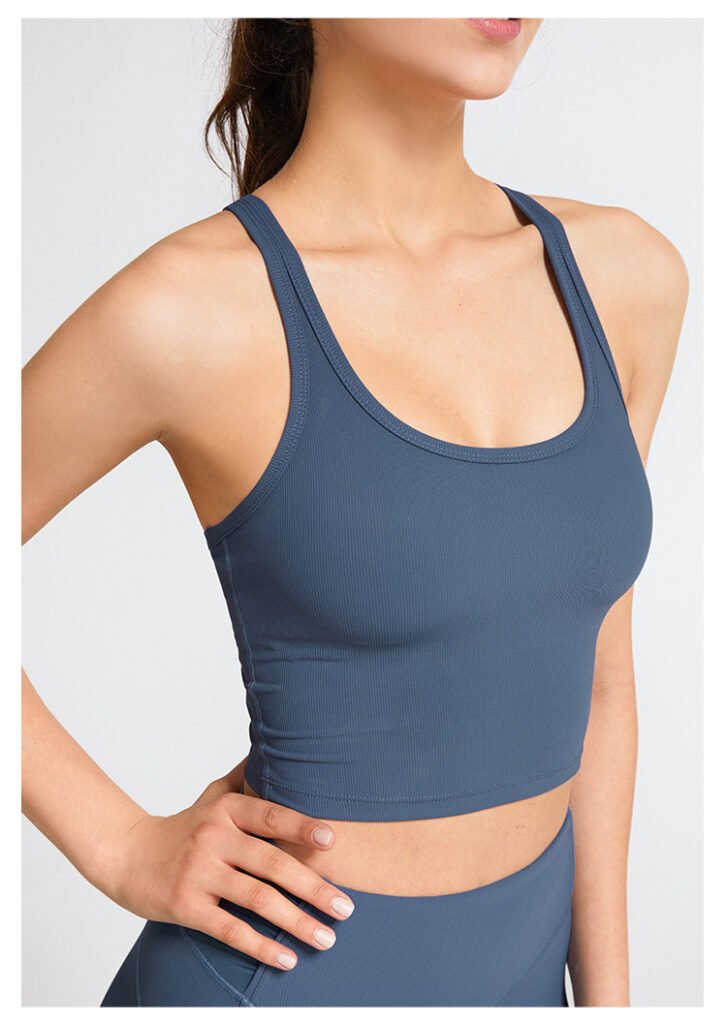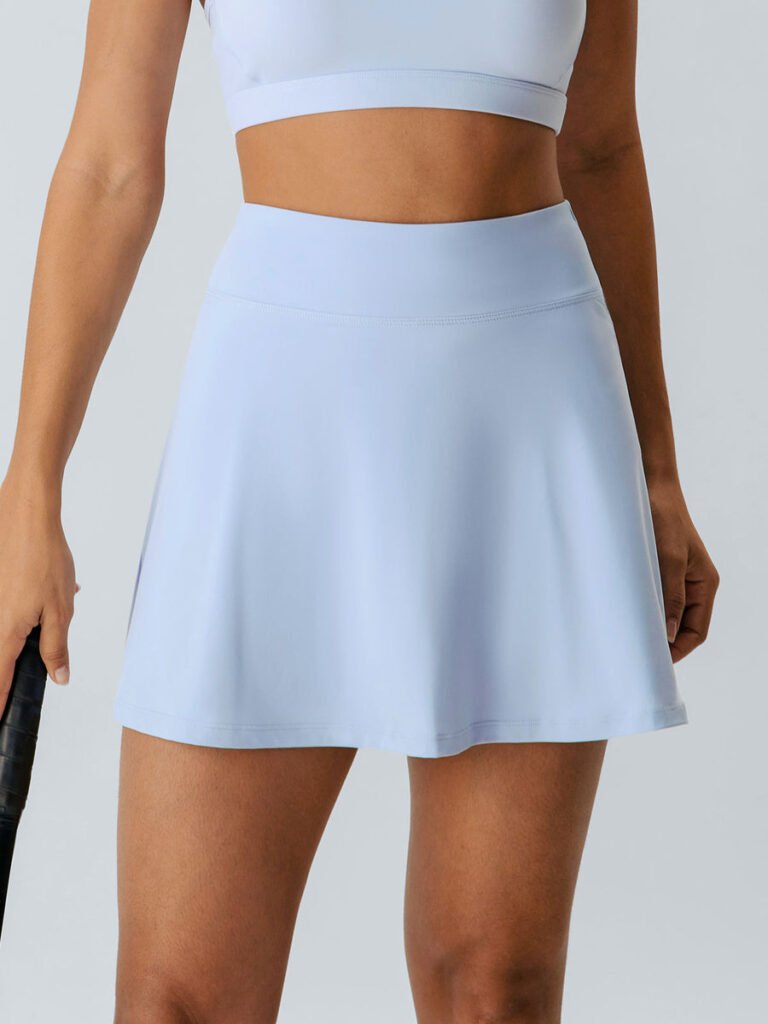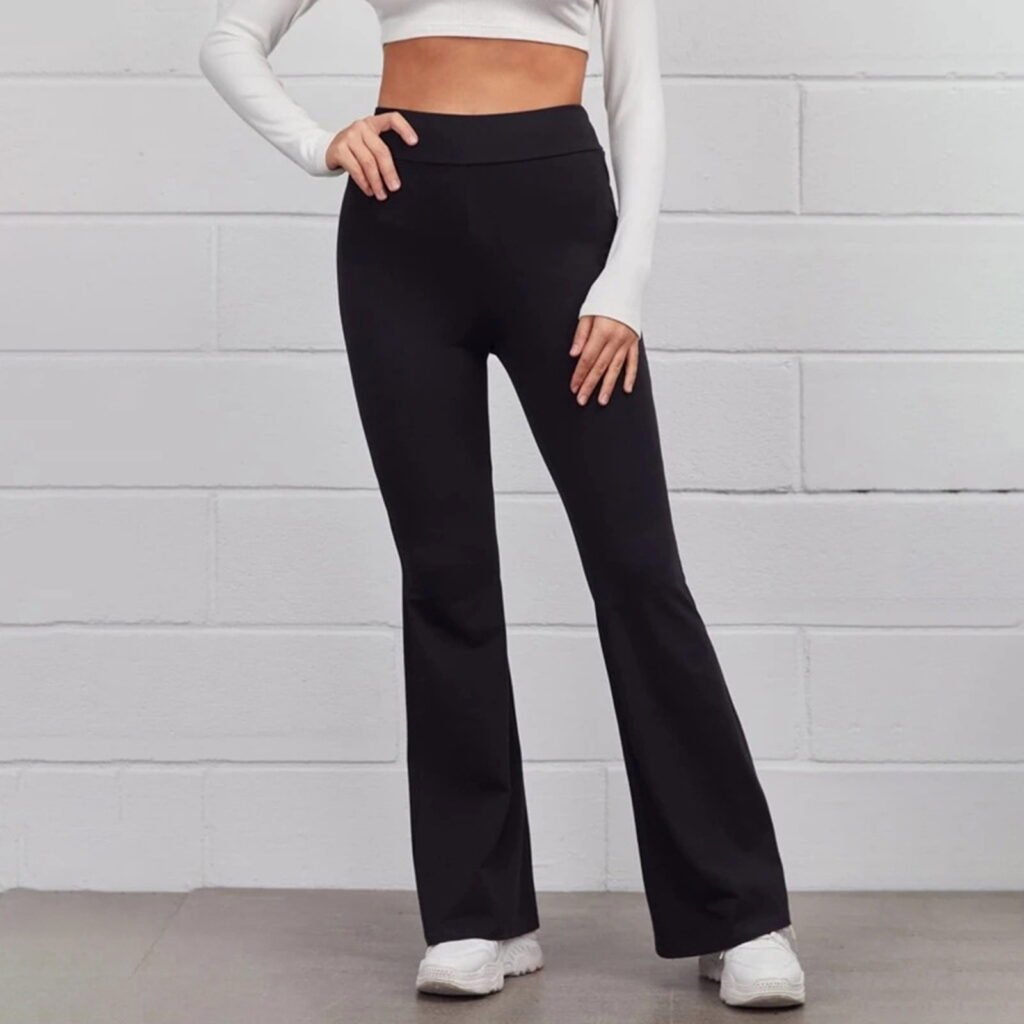Abstract
Embarking on a new venture in the dynamic sportswear market, particularly in yoga and activewear, requires a foundational understanding of sourcing. For startups, identifying and partnering with the right wholesale sports suppliers can dictate everything from product quality to market competitiveness and brand reputation. This comprehensive guide is meticulously crafted for new industry players, offering a step-by-step roadmap to navigate the complexities of finding, evaluating, and fostering successful relationships with suppliers. It delves into critical aspects, from defining your specific niche and exploring effective sourcing avenues to rigorous supplier vetting, ensuring quality control, mastering negotiation strategies, and building enduring partnerships that drive long-term success in the activewear industry.Table of Contents
- Defining Your Niche: What to Look for in a Wholesale Sports Supplier for Yoga & Activewear
- The Search Begins: Top Avenues to Find Reliable Wholesale Sports Suppliers
- Vetting Your Options: Key Criteria for Evaluating Potential Yoga & Sports Wear Manufacturers
- Quality Control & Compliance: Ensuring Excellence in Your Activewear Inventory
- Negotiating Terms & Placing Your First Order: A Guide for Wholesale Sports Apparel
- Building a Lasting Partnership: Strategies for Long-Term Success with Your Activewear Supplier
Defining Your Niche: What to Look for in a Wholesale Sports Supplier for Yoga & Activewear
Before initiating any search for a wholesale sports suppliers, a startup must first meticulously define its niche within the vast yoga and activewear market. This initial strategic clarity is paramount as it directly informs the type of supplier you seek, the product specifications required, and ultimately, your brand’s identity and market positioning. Understanding your specific product requirements, target audience, and brand values forms the bedrock of a successful supplier search (Mastering Your Niche: The Key to Sportswear Brand Success). Consider the following aspects to articulate your niche:-
Product Requirements and Specifications:
- Are you focusing on high-performance athletic wear, comfortable lounge activewear, or specialized yoga apparel?
- What specific features are essential? This could include high elasticity, quick-drying properties, seamless construction, or specific compression levels. For instance, focusing on wholesale Yoga Clothes means prioritizing flexibility, comfort, and breathability.
- Identify the types of garments: leggings, sports bras, yoga jackets, sports shorts, jogging suits, or sports coats. Companies like Guangzhou Baiyun Fuyida Clothing Factory specialize in a comprehensive range of yoga fitness clothing items, offering insights into potential product scope (Wholesale Activewear – Sourcing Wise).
-
Target Audience:
- Who are you selling to? Demographics such as age, gender, lifestyle, and income level will influence design, fabric choice, and pricing strategy.
- Are they beginners, seasoned athletes, or individuals seeking casual activewear? Their specific needs and preferences should guide your product selection.
-
Brand Values:
- Does your brand prioritize sustainability, ethical manufacturing, or local production? These values will significantly narrow down your supplier options.
- What aesthetic and quality standard do you want to convey? A clear brand vision ensures alignment with your chosen supplier’s capabilities and ethos.

The Search Begins: Top Avenues to Find Reliable Wholesale Sports Suppliers
Once your niche is clearly defined, the next crucial step is to identify potential wholesale sports suppliers. The digital age has expanded the avenues for sourcing, offering both global reach and specialized directories. For new entrants, understanding the most effective platforms and strategies is key to finding reliable partners for your Sports Wear brand. Here are the primary avenues to explore:-
B2B Marketplaces:
- Platforms like Alibaba, Global Sources, and Made-in-China are extensive online marketplaces where manufacturers and suppliers from around the world list their products. They allow for broad searches, price comparisons, and direct communication with numerous suppliers. However, thorough vetting is still necessary.
-
Trade Shows and Exhibitions:
- Attending industry-specific trade shows (e.g., those for sporting goods, apparel, or textiles) offers a unique opportunity to meet potential suppliers face-to-face. This allows for direct inspection of product quality, discussion of customization options, and immediate assessment of communication styles. It’s also an excellent way to network and gain industry insights.
-
Online Directories and Databases:
- Specialized wholesale directories, such as Wholesale Central, serve as premium sourcing tools connecting buyers with wholesale suppliers and products. These platforms are often strictly B2B, streamlining the search for legitimate wholesale operations (Wholesale Sporting Goods Vendor Directory). Other industry-specific directories can also provide curated lists of manufacturers.
-
Industry Referrals and Networks:
- Leveraging your professional network for recommendations can yield highly reliable leads. Fellow entrepreneurs, business mentors, or industry consultants might have direct experience with reputable suppliers and can offer valuable insights and introductions.
-
Direct Manufacturer Websites:
- Many established manufacturers, particularly those offering private label or OEM/ODM services, maintain their own professional websites. A direct approach allows for a deeper understanding of their capabilities, specializations, and typical client base, often providing more comprehensive information than marketplace listings.
Vetting Your Options: Key Criteria for Evaluating Potential Yoga & Sports Wear Manufacturers
Once you have compiled a list of potential yoga clothing suppliers, the next critical phase involves thoroughly vetting each option. This meticulous evaluation process is vital to ensure you select a manufacturer that can consistently deliver high-quality products, align with your brand’s ethos, and support your business growth. Choosing the right partner requires in-depth diligence across numerous factors (8 Essential Tips for Selecting the Optimal Yogawear Manufacturer). Key criteria for evaluating potential yoga and sports wear manufacturers include:-
Product Quality and Material Expertise:
- Assess their proficiency in working with performance fabrics commonly used in activewear (e.g., moisture-wicking, stretch, compression materials).
- Request samples to scrutinize fabric feel, stitching quality, durability, and overall craftsmanship. This is non-negotiable for maintaining brand standards.
-
Ethical Manufacturing and Sustainability:
- Inquire about their labor practices and working conditions. Ethical sourcing is increasingly important to consumers.
- Look for manufacturers that use recycled fabrics, low-impact dyes, and hold sustainability certifications. This aligns with a growing consumer demand for eco-conscious products and enhances your brand value (The Ultimate B2B Guide to Sourcing & Selling Activewear & Yoga…).
-
Production Capability and Scalability:
- Determine their production capacity to ensure they can meet your current and future order volumes.
- Assess their flexibility with Minimum Order Quantities (MOQs). For startups, flexible MOQs are crucial, as many factories have high unit requirements for new styles (8 Essential Tips for Selecting the Optimal Yogawear Manufacturer).
-
Customization Options (OEM/ODM):
- If you plan for private labeling or custom designs, ensure the manufacturer has strong OEM (Original Equipment Manufacturer) or ODM (Original Design Manufacturer) capabilities. This includes technical expertise in product development and design customization.
-
Pricing Structures and Payment Terms:
- Obtain detailed quotes and understand their pricing models. Compare these with market benchmarks.
- Clarify payment terms, including deposit requirements, payment milestones, and credit options.
-
Communication Responsiveness and Support:
- Evaluate their communication efficiency, clarity, and willingness to provide support throughout the production process. A collaborative approach is key to product development success (The Ultimate B2B Guide to Sourcing & Selling Activewear & Yoga…).
-
Market Trends Awareness:
- Work with manufacturers that are attuned to yoga market trends, forecasts, and customer preferences. Their insights can be invaluable for product development and staying competitive.
| Criterion | Description | Why it’s Important for Startups |
|---|---|---|
| Product Quality & Material Expertise | Ability to work with performance fabrics, quality of stitching, durability. | Ensures your brand delivers reliable, high-performing products. |
| Ethical & Sustainable Practices | Fair labor, recycled materials, eco-certifications. | Builds a responsible brand image, meets consumer demand. |
| Production Capability & MOQs | Factory capacity, flexibility for small batch orders. | Crucial for testing new products and managing initial inventory risks. |
| Customization Options | OEM/ODM capabilities for private label or custom designs. | Allows for unique brand identity and product differentiation. |
| Pricing & Payment Terms | Competitive pricing, clear payment schedules, favorable terms. | Manages cash flow and ensures profitability. |
| Communication & Support | Responsiveness, clarity, and willingness to collaborate. | Minimizes misunderstandings, fosters efficient problem-solving. |
| Market Trend Awareness | Understanding current and future industry trends. | Keeps your product line fresh and competitive. |
Quality Control & Compliance: Ensuring Excellence in Your Activewear Inventory
For any activewear brand, especially one focused on yoga and performance wear, maintaining high quality and ensuring compliance with industry standards are non-negotiable. Quality control is an indispensable process in garment manufacturing, guaranteeing that all products adhere to specific standards, requirements, and regulations (Ensuring Excellence: Quality Control in Garment Manufacturing). For startups, understanding and verifying these aspects with your chosen manufacturer is crucial to delivering excellence to your customers. Key aspects of quality control and compliance include:-
Requesting and Evaluating Samples:
- Always request physical samples of your specific products. This is your first opportunity to assess:
- Fit and Sizing: Ensure consistency with your brand’s sizing charts.
- Fabric Hand Feel and Performance: Verify the material matches specifications (e.g., stretch, moisture-wicking).
- Stitching and Construction: Inspect for neatness, durability, and absence of loose threads.
- Color Accuracy: Check against your approved color palette, as color variations can occur between batches (Comprehensive Quality Control in Activewear Manufacturing).
- Overall Finish: Look for any defects, snags, or inconsistencies.
- Always request physical samples of your specific products. This is your first opportunity to assess:
-
Understanding Factory Production Processes:
- Inquire about the manufacturer’s quality control checkpoints throughout their production line:
- Material Inspection: How do they inspect raw fabrics and components upon arrival?
- In-line Inspection: Are quality checks performed during cutting, sewing, and finishing stages?
- Final Inspection (Pre-Shipment): What is their process for inspecting finished goods before packaging and shipment? Request their QC reports and methodology.
- Inquire about the manufacturer’s quality control checkpoints throughout their production line:
-
Verifying Quality Standards and Regulations:
- Specific Quality Standards: Ensure the manufacturer adheres to your defined quality parameters, covering aspects like fabric integrity, colorfastness, shrinkage, and seam strength.
- International Compliance: For activewear, certain regulations related to fabric safety, chemical content (e.g., REACH, OEKO-TEX Standard 100), and product labeling might apply. Verify that the manufacturer holds relevant certifications or can provide testing reports to ensure compliance in your target markets.
- Social and Environmental Compliance: If your brand emphasizes ethical and sustainable practices, confirm that the factory complies with recognized social audit standards (e.g., WRAP, SA8000) and environmental certifications.

Negotiating Terms & Placing Your First Order: A Guide for Wholesale Sports Apparel
After successfully vetting potential yoga clothing suppliers and confirming their capability to deliver the desired quality, the next critical phase involves negotiating terms and placing your initial order. This stage requires a strategic approach, encompassing clear communication, thorough preparation, and a willingness to establish a mutually beneficial agreement. Effective negotiation is not just about securing the lowest price, but about building a robust foundation for a long-term partnership (Tips for Negotiating Wholesale Deals for Your Market). Here’s a guide to negotiating terms and placing your first order for wholesale sports apparel:-
Conduct Thorough Market Research:
- Before entering negotiations, have a clear understanding of current market prices for similar products. This knowledge empowers you to determine fair pricing and identify areas for negotiation. Market research is crucial for informed decision-making regarding supplier options and competitive landscape (Tips for Negotiating Wholesale Deals for Your Market).
-
Minimum Order Quantities (MOQs):
- MOQs are often a significant hurdle for startups. Discuss these early. If the stated MOQ is too high, explore options such as:
- Negotiating a higher price for a lower initial quantity.
- Phased orders: committing to larger volumes over time but starting with a smaller batch.
- Grouping different product styles to meet the MOQ if the supplier allows.
- MOQs are often a significant hurdle for startups. Discuss these early. If the stated MOQ is too high, explore options such as:
-
Pricing Negotiation:
- While you want competitive pricing, remember that the lowest price isn’t always the best value. Focus on the overall cost-benefit, including quality, reliability, and service.
- Discuss potential volume discounts for future, larger orders.
- Clearly understand all costs, including product unit price, tooling, sampling, packaging, and shipping.
-
Payment Terms:
- Standard payment terms often involve an upfront deposit (e.g., 30-50%) and the balance upon completion or shipment.
- For initial orders, suppliers might be less flexible. As the relationship develops, you might negotiate more favorable terms, such as a smaller deposit or longer payment windows. Always ensure clarity and agree on the currency of payment.
-
Lead Times:
- Clarify the lead time for production and delivery. This is the period from order confirmation to goods being ready for shipment.
- Factor in shipping time separately and build in a buffer for unforeseen delays. Realistic lead times are essential for inventory planning and launch schedules.
-
Formal Contract and Specifications:
- Once all terms are agreed upon, a formal cooperation contract should be signed. This document is critical. It must clearly define product specifications (materials, colors, sizes, designs), quality standards, MOQs, pricing, payment terms, lead times, and any intellectual property agreements (Sports Apparel Wholesale Procurement Guide: Direct from Factory…).
- Ensure all agreed-upon details from samples and negotiations are explicitly stated to prevent future disputes.
-
Establishing Trust and Transparency:
- Successful wholesale negotiations are built on trust, transparency, and effective communication. These elements foster long-term partnerships and mutual benefits (Tips for Negotiating Wholesale Deals for Your Market). Be clear about your business needs and budget constraints, and avoid common mistakes like insufficient research or unwillingness to walk away if terms are unfavorable.
Building a Lasting Partnership: Strategies for Long-Term Success with Your Activewear Supplier
Finding an ideal activewear supplier is merely the first step; building a strong, lasting partnership is what truly propels a brand forward. A long-term collaborative relationship with your manufacturer is one of the most effective ways to create a sustainable and successful brand (How to Find the Right Activewear Manufacturer for Your Brand). It fosters consistency, enables innovation, and provides a stable supply chain for high-quality yoga and sports wear. Strategies for fostering a lasting and mutually beneficial relationship include:-
Communicate Clearly and Consistently:
- Outline your needs, timelines, and expectations upfront and maintain open lines of communication throughout the entire process (Activewear Fabric Suppliers for Small Businesses – 330 Trading Co.).
- Provide regular feedback, both positive and constructive, on product quality, lead times, and service. This helps the supplier understand your evolving requirements and improve.
- Utilize clear communication channels and agree on preferred methods (email, video calls, project management tools).
-
Be Reliable and Accountable:
- Fulfill your part of the agreement diligently. This primarily means making timely payments for invoices. Reliability builds trust and demonstrates your commitment as a business partner (Activewear Fabric Suppliers for Small Businesses – 330 Trading Co.).
- Adhere to agreed-upon schedules for approvals and feedback to avoid delays on the supplier’s end.
-
Collaborate on Problem-Solving:
- Challenges are inevitable in any supply chain. When issues arise (e.g., production delays, material shortages, quality concerns), approach them collaboratively rather than confrontationally.
- Work with your supplier to find practical solutions, demonstrating flexibility and understanding of their operational constraints.
-
Foster Mutual Respect and Understanding:
- View your supplier as an extension of your team, not just a service provider. Understand their capabilities, challenges, and cultural nuances if working internationally.
- Building personal rapport can significantly enhance working relationships and lead to greater cooperation.
-
Discuss Future Needs and Growth:
- Regularly update your supplier on your business growth plans, upcoming product lines, and anticipated volume increases. This proactive approach allows them to plan their resources and adapt to your evolving demands.
- Explore opportunities for joint innovation or new material sourcing, further cementing the partnership.
Conclusion
Navigating the complexities of sourcing in the activewear industry can be daunting for startups, yet the selection of the right wholesale sports supplier is undeniably foundational to success. This guide has illuminated a meticulous path, from the critical first step of defining your brand’s unique niche to the art of fostering enduring supplier relationships. By adopting a systematic approach – thoroughly defining product needs, exploring diverse sourcing avenues, rigorously vetting potential partners, prioritizing quality and compliance, negotiating terms strategically, and cultivating strong communication – new businesses can mitigate risks and build a resilient supply chain. Ultimately, a carefully chosen and nurtured supplier partnership transcends mere transactions, becoming a strategic asset that ensures consistent quality, supports innovation, and empowers your brand to thrive in the competitive yoga and activewear market.Sources
- Mastering Your Niche: The Key to Sportswear Brand Success: https://www.youtube.com/watch?v=P2ft47Tr7nM
- Wholesale Activewear – Sourcing Wise: https://www.sourcingwise.com/en/wholesale-activewear/
- Wholesale Sporting Goods Vendor Directory: https://www.wholesalecentral.com/Sporting-Goods.html
- Where can I buy sports items for wholesale to start up a sports shop …: https://www.quora.com/Where-can-I-buy-sports-items-for-wholesale-to-start-up-a-sports-shop-in-my-home-town
- 8 Essential Tips for Selecting the Optimal Yogawear Manufacturer: https://zchyoga.com/8-essential-tips-for-selecting-the-optimal-yogawear-manufacturer/
- The Ultimate B2B Guide to Sourcing & Selling Activewear & Yoga …: https://cnhaving.com/the-ultimate-b2b-guide-to-sourcing-selling-activewear-yoga-wear-market-trends-manufacturing-partnership/
- Ensuring Excellence: Quality Control in Garment Manufacturing: https://www.fibre2fashion.com/industry-article/9903/ensuring-excellence-quality-control-in-garment-manufacturing
- Comprehensive Quality Control in Activewear Manufacturing: https://www.lemon8-app.com/jasonxiong/7429624649980215814?region=us
- Sports Apparel Wholesale Procurement Guide: Direct from Factory …: https://www.aprilluck.com/sports-apparel-wholesale-procurement-guide/
- Tips for Negotiating Wholesale Deals for Your Market: https://berriesparadise.com/blog/tips-for-negotiating-wholesale-deals-for-your-market/
- How to Find the Right Activewear Manufacturer for Your Brand: https://cmgarmindo.com/how-to-find-the-right-activewear-manufacturer-for-your-brand/
- Activewear Fabric Suppliers for Small Businesses – 330 Trading Co.: https://www.330trading.com/blogs/beyond-bulk-orders-activewear-fabric-suppliers-for-small-businesses
Looking For Yogawear Supplier? Get Wholesale Price From Us Now





![[JuncoSports]How to Find the Perfect Wholesale Sports Supplier: A Step-by-Step Guide for Startups](https://www.juncosports.com/wp-content/uploads/2025/09/image.jpg)

![[JuncoSports]The Insider's Guide to Sourcing High-Quality Wholesale Yoga Apparel](https://www.juncosports.com/wp-content/uploads/2025/07/image-15.jpg)
![[JuncoSports]From Studio to Street: Top 5 Wholesale Yoga Apparel Trends for Maximum Profit](https://www.juncosports.com/wp-content/uploads/2025/07/image-16.jpg)
![[JuncoSports]7 Red Flags to Watch for When Choosing Yoga Clothing Suppliers](https://www.juncosports.com/wp-content/uploads/2025/07/image-17.jpg)
